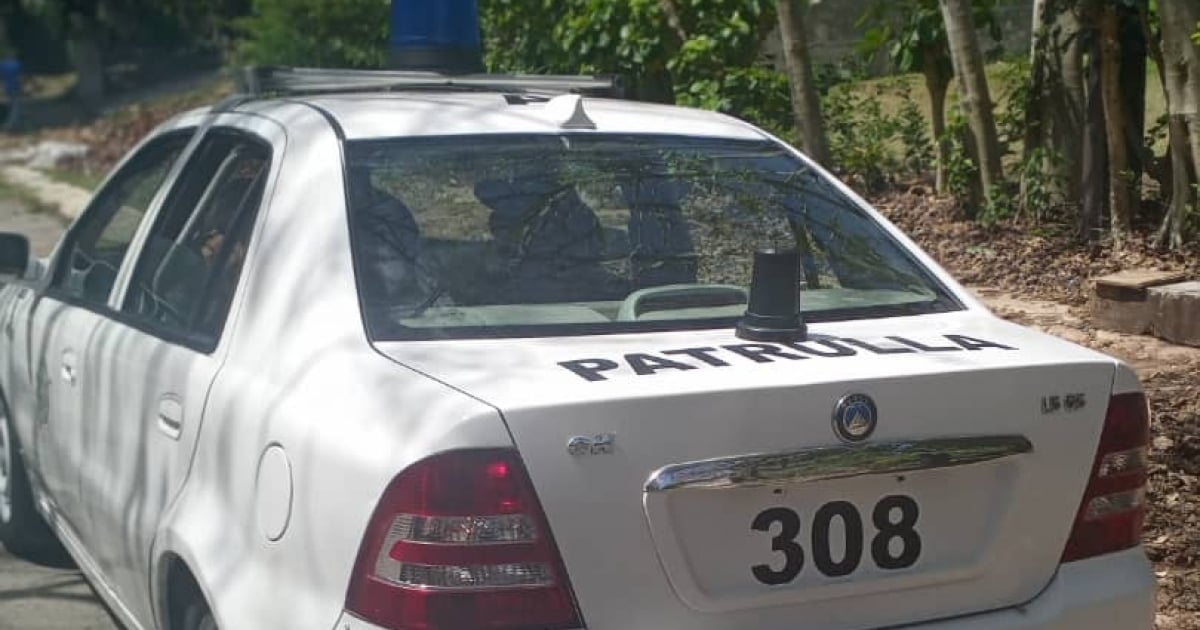
The province of Las Tunas reported an eight percent increase in crime so far in 2024, compared to the same period last year, although the regime is confident that it will be able to curb this trend through recently implemented measures.
The official newspaper Periódico 26 reported via Facebook that during an expanded extraordinary plenary of the Provincial Committee of the Party in Las Tunas, with the presence of Miguel Díaz-Canel, it was stated that the measures implemented have helped contain the incidence of crime since the second quarter, downplaying the fact that criminal activity has significantly increased.
An example of this is that a total of 48 robberies were committed in the warehouses of the province of Las Tunas during the first half of the year, primarily concentrated in the capital area and in the municipality of Puerto Padre, with a significant increase in the months of July and August.
The municipalities of Las Tunas and Puerto Padre account for 73 percent of the forceful thefts reported in the first six months of the year.
Other criminal acts were linked to the desecration of graves in the Vicente García cemetery, where several mausoleums have been violated and the remains of the deceased are scattered on the ground.
During the session, Walter Simón Noris, the First Secretary of the Party in Las Tunas, also reported that the local economy is facing difficulties, evident in the failure to meet net sales and export targets.
"The planned figures for total net sales, retail commercial circulation, and exports are not being met; although the number of state-owned companies with losses has decreased compared to the previous year," he noted.
In addition to this situation, it should be noted that the producers "have not fulfilled their scheduled deliveries to the state system for meat and milk"; however, in an effort to downplay the issue, it was pointed out that "the figures in this regard for 2023 are higher."
Noris acknowledged that the situation of the sugar agro-industry is disastrous, emphasizing that, aside from compliance with technical standard 52 at the Antonio Guiteras mill, the rest of the indicators are alarming.
The number of acres planted with sugarcane, the land cleared, and the areas free of weeds are alarmingly low, further worsening the situation of the sector in the province.
Noris anticipated that only the Antonio Guiteras sugar mill will be able to produce sugar in the upcoming harvest, while the Majibacoa and Amancio Rodríguez mills will be limited to producing molasses.
“The sugar harvest is one of the main challenges we face,” emphasized the leader, hinting at the serious issues confronting the sector in the eastern region.
Regarding the banking of the economy, the figures presented by the First Secretary of the Party indicate an increase in transactions through electronic channels, with a 10% rise compared to the end of 2023.
Currently, more than 40,000 online transactions are conducted weekly, and 270,000 through various established channels, he noted.
However, he warned that cash inflow into the banking system in Las Tunas only reaches 63% of what was planned.
Moreover, only about one-tenth of the non-state productive entities in the agricultural sector have implemented digital payment gateways, highlighting the slow adoption of the necessary tools to modernize the local economy.
The official indicated that in 2024, the oversight and control structures in Las Tunas intensified their actions against various economic actors, increasing both the imposition and collection of fines, as well as inspections and efforts to combat illegal activities and social indiscipline.
According to Noris, the outcome has been positive: over 42 million pesos have been collected for public funds, resulting from the detection of underreported incomes by taxpayers involved in imports or in the buying and selling of cars and homes between individuals.
Filed under: